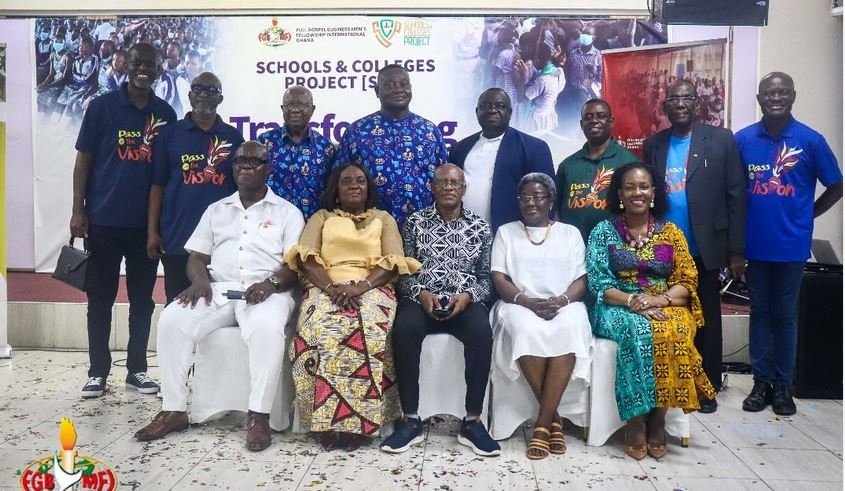Features
Social media and vaccine hesitancy

Social media platforms are an important outlet for disseminating information in various aspects of life, and many people are using these platforms and virtual meetings to educate their members.
In this era of COVID-19 pandemic, social media platforms are being used widely to share information and education about the disease. This COVID-19 has caused many deaths and made others sick and is, indeed, putting a huge burden on healthcare systems in many countries.
The economic and health effect of the pandemic has hit communities in different ways in many sectors, and initial research has shown that migrants and other minority or marginalised populations, for example, have become more vulnerable.
In Finland, social media platforms are used to circulate information and education among citizens; migrant groups or associations are also using social media to communicate about the disease, its safety protocols and prevention or treatment.
Many migrants, including those in the Ghanaian community, are using those channels to inform and educate their members about the disease.
Adhering to safety protocols
Ghanaian migrants and others continue to make great efforts to avoid becoming infected with the disease by adhering to the safety protocols such as social distancing, not hugging or shaking hands, wearing of masks, regularly washing of hands or using hand sanitisers, etc.
As vaccines are being administered to people, I can imagine how many Ghanaian migrants here have embraced the vaccination, which is to help control or minimise the effect of the virus on patients.
According to key health institutions and experts, vaccines are an important part of mitigating the effects of COVID-19 as they reduce the severity of the symptoms in case one becomes infected.
Some friends here and elsewhere have taken the first and second shots and are doing okay. They are so elated to have had that opportunity. They can have opportunities once they have life, and COVID-19 cannot stop them if they keep safe.
Social media, lies/misinformation, conspiracy theories
It is becoming clear that access to social media is allowing many lay people to stray into areas reserved for experts. Even people who obviously have almost zero knowledge of technical subjects of topics are communicating on the subject and claiming to know it all.
Sadly, there seems to be vaccine hesitancy in Ghana because of conspiracy theories, cynicism, ignorance, and worse of all, sheer mischief by some people. Many videos, audios and written texts paint a picture of scary outcomes should one take the vaccine.
As I wrote some time ago, some people think the vaccines brought to African countries are different from the ones being used in the Western nations; therefore, the ones brought to Africa could be dangerous and meant to depopulate the Black race. Some have even claimed without any proof that the vaccines would leave people with sexual dysfunction.
All this has resulted in doubts about efficacy of the vaccines brought to Ghana and other African countries.
Such conspiracy theories remind me about HIV/AIDS. Conspiracy theories were rife about the disease in Africa with some people claiming that HIV/AIDS had been created in laboratories in the West to kill Blacks.
Eventually, HIV/AIDS saw many infections and deaths in Ghana and other African countries. Today, Sub-Saharan Africa remains the most affected region in the world with more than two-thirds (67%) of the about 35 million people living with HIV, according to the UNAIDS.
The way forward
Ghanaian migrants in Finland are generally keeping a positive mind and hoping for things to get better in the near future with the COVID-19 situation.
They are generally adhering to directives by the Finnish health authorities about COVID-19 safety protocols. They are taking the vaccines as a precaution.
I think in Ghana too, there is the need to intensify education about the vaccines to help control COVID-19.
The key stakeholders—government/institutions of state, health authorities, religious leaders, traditional authorities, non-governmental organisations, etc.— should all come in even more strongly than before to educate people in our localities. The media should be one of the leading groups in this endeavour. Thank you.
Features
The Prophet part 2

“I can see in the spirit, that some of you have been trading for years without seeing any meaningful profits, some young women have been disappointed by men who have either abandoned them and left for foreign lands and forgotten about them, or stopped sending money for the upkeep of their wives and children.
I can see young men who are desperate for visas to travel abroad but have either been duped by visa contractors or refused at the embassies. From tomorrow, I assure you, the visas will be given.
Young women, I have news for you. You will receive telephone calls, and you will hear very good news. Handsome young men with money in their pockets will come and marry you, and take care of you. Traders, you will get big business and big profits from today. From today, you will see that I am a true prophet who has come to deliver you.”
Shouts of “Amen,” “thank you Prophet” and “I receive it” greeted his sermon. After a final prayer, he asked the congregation to come early the following day, and bring others, because there would be many testimonies.
There would also be “special anointing” for great miracles. Although he did not ask for an offering, most of the people came and dropped notes, and coins at the “pulpit.” When they left, Antobam counted the money.
“GH¢900!” he almost shouted, ‘and I did not even ask for an offering. This is fantabulous!’ Going to the Nana Kofi Broni shrine, he told himself, was a very wise move.
He started making plans……He had to choose a few assistants who would carry out his orders……. He had to hire some chairs as soon as possible……He had to find a suitable piece of land and, if possible, build his own church……. He had to start looking for a nice car, befitting the status of a popular preacher …… And, most importantly, he had to select two, three or four nice, young women to take care of his needs, apart from the servants who would cook, wash, iron and do other errands for him.
Abruptly, he told himself, this hungry, scruffy Kukurantumi boy was being transformed into a man of power and money, with some of the most beautiful women in town at his beck and call. Wow!
After a shower and supper, he shut the door to the very small room that served as his bedroom and dropped on the bed. Almost immediately, the shrill sounds, like whispers, began.
This time he did not express any fears. He realised to his great surprise that even though the sounds were not in the form of any language, he could understand them.
Tomorrow there will be testimonies……they will give money……. some rich people are being prepared …….they will bring big money ………. we will give them what they want, and they will bring money ……. big money …….big, big money……the women will also come, a number of them. ‘
He went to sleep smiling and whispering to himself, ‘big, big money, and women!’
He woke up at 5 and took a shower. After a breakfast of tea and several slices of bread he set off. On reaching the venue he saw to his great surprise that the place was full.
Very full, and quite a number of people rushed to embrace him and give him the wonderful news. The excited people narrated the testimonies about big sales, telephone calls from relatives directing them to go to Western Union, and impotent husbands who had miraculously rediscovered their magic powers.
He was truly glad that Nana Kofi Broni’s magic had already started working, but most of his attention was focused on the ladies in the congregation. He noticed to his great delight that some of them were really nice. I must start making my selection, he told himself. Today!
“Give a mighty clap offering to the great, mighty one for his wonders among us!” he started, and the response was very big.
“I said yesterday that you were going to see signs and wonders, and I am very happy that my word has been fulfilled. Even though we have taken allowed one hour for testimonies, many more of you would like to testify.
Tomorrow, I promise you that there will be ample time. I will only preach a short sermon. The rest of the time will be taken up by consultations, after which I will give directions on what to do to ensure that you defeat your enemies, secure your marriage and, most importantly, continue increasing your profits in your business.” His sermon was interspersed with ecstatic shouts of “Amen,” “it is true,” “God bless you” and “I receive it.”
His final word was emphatic; “Big miracles are coming your way. Keep attending church, and don’t forget to give thanks to God.”
By Ekow de Heer
Features
Full Gospel Businessmen Fellowship launches project to transform young lives

The Full Gospel Businessmen’s Fellowship International (FGBMFI) Ghana has launched the Senior High Schools and Colleges Project (SCP) aimed at empowering and transforming the lives of young people.
Speaking at the launch, Professor Mike Ocquaye, the former Speaker of Parliament, emphasised the need to catch them young and train them as the current times were challenging.
He lauded the project, calling on all to support it, saying “In fact, it’s very important to catch them young, train them, lead them, guide them, and mentor them because the times are indeed rough,” Prof. Ocquaye said.
Mr Ekow Egyir Dadson, the Director, Schools and Colleges Directorate, stated that since its inception in 2018, the SCP had reached over 70 educational institutions with countless testimonies of transformation.
“We began with the Presbyterian Boys Secondary School (PRESEC) Legon, and now in 2024, we have visited 74 schools and impacted the lives of over 100,000 students, some of whom were personally mentored and now have graduated from the universities.”
He explained that the SCP, a vision by FGBMFI Ghana, was a bold outreach programme designed to call young people to Christ, train and equip them for the future.
He cited testimony-sharing, mentorship, career guidance, entrepreneurship and counseling as some of the unique approaches to be used in reaching out to the targeted students.
Mr Emmanuel Baba Mahama, the National President of the FGBMFI Ghana, launched the SCP Manual, which would help the FGBMFI Zonal Family Chapters across Ghana in order to adopt schools and colleges within their catchment areas.
The Schools and Colleges project is making a great impact; we have had first-hand testimonies from school heads, teachers, and students (mentees) about the SCP. This project has come to stay, Mr Baba Mahama assured.
He, therefore, called for more volunteers and partners to help the SCP shape the next generation of leaders and citizens.
Findings by the FGBMFI revealed that Ghana’s senior high schools, colleges, and university students face growing challenges like addictions, indiscipline, poor academic performance, pornography, homosexuality, broken homes, and a lack of godly guidance.
That had been a concern to many parents and society, “but the FGBMFI believes there is hope to rescue and restore these young students,” Mr Mahama said. –GNA





